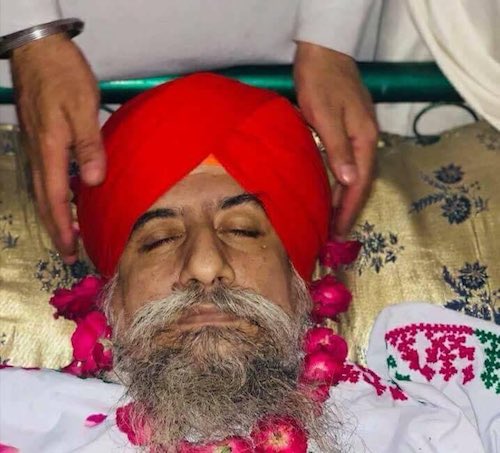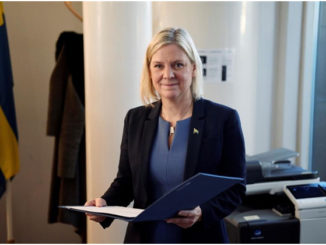
Legends never die! This is why Milkha Singh will always be alive in the memories of those who look up to him, he will be alive in all those priceless medals he won for the country and he will stay alive in all those budding athletes whom the ‘Flying Sikh’ inspired.
The track, to him, was like an open book in which Milkha Singh found the “meaning and purpose of life”. And what a life he made for himself.
Born on 20 November 1929 into a Sikh family in Govindpura, which is now a part of Pakistan, Milkha Singh was introduced to the sport only after he had fled to India post the partition and joined the Indian Army. It was in the army where he sharpened his running skills. After he finished sixth in a cross-country race that had around 400 more soldiers running, he was handpicked for further training. That laid the foundation for what would be an impressive career.
Before his 91-year-old body lost to COVID-19 on June 18 after fighting it for a month, Milkha won the kind of battles that not many would have survived, forget about living long enough to tell the world about them.
Early life
From beginnings that saw him orphaned and displaced during the Partition of India, Milkha has become a sporting icon in his country.Escaping the troubles in Punjab, where killings of Hindus and Sikhs were continuing, by moving to Delhi in 1947, Milkha lived for a short time with the family of his married sister and was briefly imprisoned at Tihar jail for travelling on a train without a ticket. His sister, Ishvar, sold some jewelry to obtain his release. He spent some time at a refugee camp in Purana Qila and at a resettlement colony in Shahdara, both in Delhi.
Milkha became disenchanted with his life and considered becoming a dacoit but was instead persuaded by one of his brothers, Malkhan, to attempt recruitment to the Indian Army. He successfully gained entrance on his fourth attempt, in 1951, and while stationed at the Electrical Mechanical Engineering Centre in Secunderabad he was introduced to athletics.
He had run the 10 km distance to and from school as a child and was selected by the army for special training in athletics after finishing sixth in a compulsory cross-country run for new recruits. Singh has acknowledged how the army introduced him to sport, saying that “I came from a remote village, I didn’t know what running was, or the Olympics”. Milkha conquered the world of athletics with his grit, determination and resolve to rise from every setback like a phoenix. Thanks to his performances across the globe, Milkha dominated the field of sprinting for more than 10 years, scripting numerous records and winning multiple laurels for the country.
It is safe to say that the legend introduced India to ‘track and field’ and to date, there has been no one who matches Milkha’s achievements in the country in this field. With his demise on June 18, it undoubtedly is the end of an era that saw none come even close to his achievements, let alone match them.
A glimpse into the stupendous athletics career of legendary Milkha Singh can be had from this mind boggling fact: his 400 metres Indian national record stood for 38 years and the 400m Asian record for 26 years. In 1960 in Rome, he came closest to winning an individual Olympic Games medal as an Indian, in 400m, eventually finishing fourth in a photo finish.
Milkha was one of the favourites to win the 400m gold in Rome. It was probably natural, too, as going into the Olympics, he is said to have won 77 out of 80 races, including the 1958 Commonwealth Games gold in 440 yards.
But one shortcoming probably cost Milkha an Olympic medal. He had a habit of looking at his opponents over his shoulder while running races, and when he did the same in Rome it was decisive, though he had led the race until 200m. Later he admitted that he had paid a heavy price for his habit. He lost the race of his life in the Rome Olympics, finishing the 400m final in 45.6 seconds, 0.1 second short of the bronze medal mark.
He remained tormented by that miss, one of the only two incidents in his life, which he described as unforgettable — the other being the killing of his parents in Pakistan.
Interestingly, Milkha broke the existing world record of 45.9 sec in Rome, and so the three who finished ahead of him. He finished fourth with a time of 45.6 seconds, as per a hand-held device, while an unofficial electronic timer at the games clocked him at 45.73 sec. This has been a point of contention, though.
The emergence of the ‘Flying Sikh’
Young Milkha first hogged the limelight when he outperformed 394 soldiers in a race and was selected for further grooming and training. That eventually laid the base for him to become a legendary sprinter.
Milkha represented India at the 1956 Olympics in Melbourne, the 1960 Olympics in Rome, and the 1964 Olympics in Tokyo. He was the first Indian athlete to claim a gold medal in the individual athletics category at the Commonwealth Games before the sprinter’s record was broken in 2010.
Milkha, who is regarded as one of the world’s greatest athletes, defeated Pakistan sprinter Abdul Khaliq in a 200-Metres race to win a gold medal in Tokyo Asian Games. Khaliq was the fastest man in Asia in 1958 and after Milkha defeated him, the Indian sprinter was given the title of “The Flying Sikh”.
Prior to that race, Milkha had won the gold in 400 metres while Khaliq had clinched the gold medal in 100 metres and with the Indian sprinter winning the 200 Metres race, he took the honour of then “Asia’s best Athlete”.
Overcoming the hurdles
One of independent India’s biggest sporting icons was a tormented man but refused to let that come in the way of accomplishments that were unheard of in his era.
He saw his parents being butchered during partition, indulged in petty crimes to survive in the refugee camps of Delhi, went to jail for those, and failed three attempts at joining the Army.
Who could have thought a man like that would get the sobriquet of ‘The Flying Sikh’? But Milkha earned it and earned it with a master class on how to be bigger and better than one’s circumstances.
He “revered” the track like “the sanctum sanctorum in a temple where the deity resided.”
To him running was both his God and beloved as he created his own little fairytale out of what could have easily been a tale of horrors.
His love for athletics began after he enrolled himself with the Corps of Electronics and Mechanical Engineers (EME) of the Indian Army in Delhi.
His talent blossomed while being with the Army. Fortunately for him, his officers encouraged him, and that would have played a role in him winning the 200m and 400m races at a Services Athletics Meet in 1955.
Milkha practiced on his own while with the Army and clinched gold medals in both 200m and 400m at the 1956 National Games in Patiala, and two years later at the Cuttack Nationals, setting national records in both races.
His sporting achievements won him kudos from the Army, and the Indian government awarded him the Padma Shri in 1959. The same year, he was awarded the prestigious Helms Award.
Milkha took premature retirement from the Army and took up the post of Deputy Director of Sports with the Punjab government.
In 1991, he introduced a compulsory games period in schools and also set up sports wings in schools in the districts to tap talent at the grassroot level.
He got married to Nirmal Kaur, captain of the Indian volleyball team, in 1963. They met for the first time in 1956 in Sri Lanka when they were there for their respective national duties.
The couple was blessed with three daughters and a son, golfer Jeev Milkha Singh.It was quite stunning that an athlete of Milkha’s stature was offered the Arjuna award, instituted in 1961, only in 2001. He famously turned it down, saying the honour was not of the “stature of the services he rendered to the nation”.
In fact, Milkha was a sum total of way more than his several races and medals. He was also much more than that near-miss in Rome.
He was India’s love affair with the track, the one that this country can never get over.
Bhaag Milkha Bhaag
In 2013, Bhaag Milkha Bhaag, a film on the legendary sprinter was made to showcase his incredible struggle from being an orphan to becoming one of the greatest athletes of all time.
Bollywood actor Farhan Akhtar essayed the role of ‘The Flying Sikh’ in the biographical drama. It was through this movie that the sprinter attracted more fans and the young audience got to know about the legend of the man.
Tributes pour in
Tributes poured in on social media for the sporting icon.
Young Indian sprinter Hima Das recalled Milkha Singh’s congratulatory message when she won the 400m gold at the 2018 world under-20 championships.
“After winning world championship U-20 title and medal in Asian Games, I still remember a call from Milkha Singh sir that ‘Hima just keep on working hard, you have ample time and you can win a gold medal for our country at a global level,’ I will try to fulfil your dream sir,” Hima Das tweeted.
Bollywood actor Farhan Akhtar, who played the role of Milkha Singh in his biopic Bhaag Milkha Bhaag, penned a heartfelt note for the running great.
“A part of me is still refusing to accept that you are no more. Maybe it’s the stubborn side I inherited from you.. the side that when it sets its mind on something, just never gives up,” the actor said.
Farhan Akhtar called him a ‘constant inspiration and a reminder of humility in success’.
“And the truth is that you will always be alive,” Farhan Akhtar added. “Because you were more than a large-hearted, loving, warm, down to earth man.
Sprinter Dutee Chand touched upon how relatable Milkha Singh was and hailed his achievements during a time when sports rarely headlined in the country.
“His life was also full of struggles,” Dutee Chand told the News18 website. “His biopic Bhaag Milkha Bhaag I have seen it five-six times. I can see some similarities between his struggles and mine. Didn’t have proper diet, no track to run. Whatever hurdles I faced, he has faced them too. Can only imagine the hardships he had to go through and overcome to become what he did eventually. His life has been an inspiration to me.”
Milkha Singh achievements include being the first Indian to win a Commonwealth Games gold medal. He also came within a photo finish of clinching a medal at the 1960 Olympics in Rome, missing out on a bronze medal by just 0.1 seconds.
“His performance in (Rome) Olympics is the stuff of legends,” Dutee pointed out. “We keep on complaining about unavailability of coaches, tracks and what not but at a time when it was hard to find proper running shoes and one used to practice barefoot, Milkha made it to the Olympics. That’s the biggest thing.”
Indian football team captain Sunil Chhetri also paid respect. “We may not have seen you compete, but every time we ran fast as kids, we ran ‘like Milkha Singh’. And for me, that will always be the legend you leave behind. You didn’t just run, you inspired. Rest in peace, sir,” the footballer wrote on Twitter.
Indian boxing queen MC Mary Kom, Abhinav Bindra, the only Indian to win an individual Olympic gold, and 2012 London Games bronze medallist Saina Nehwal also paid homage to the running great.





Be the first to comment